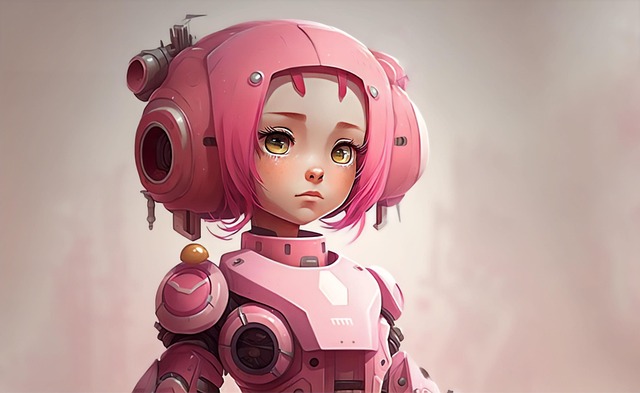# AI Technology: Pioneering Solutions for a Smarter, More Efficient Future Across All Sectors
Artificial Intelligence (AI) has rapidly evolved from a niche technology into a cornerstone of contemporary innovation. As organizations across various sectors harness the power of AI, they are discovering groundbreaking solutions that enhance efficiency, improve decision-making, and drive unprecedented levels of productivity. This article delves into the transformative impact of AI technology, examining its applications across key industries and the future it promises.
## Revolutionizing Healthcare
Healthcare has often been at the forefront of adopting technological advancements, and AI is no exception. By leveraging machine learning algorithms, healthcare providers can analyze vast amounts of patient data to identify patterns that may not be immediately apparent to human practitioners. This capability not only aids in the early detection of diseases but also enables personalized treatment plans tailored to individual patient needs.
Moreover, AI-powered diagnostic tools are transforming the way medical professionals interpret imaging data. For instance, algorithms trained on thousands of images can now detect anomalies in X-rays, MRIs, and CT scans with remarkable accuracy. Such advancements not only enhance diagnostic precision but also significantly reduce the time required for analysis, allowing healthcare providers to focus more on patient care rather than administrative tasks.
In addition, AI is streamlining operational processes within healthcare facilities. Predictive analytics can forecast patient admission rates, enabling hospitals to allocate resources more effectively. Consequently, this leads to reduced wait times and improved patient outcomes. As AI continues to evolve, its integration into healthcare promises to facilitate a more proactive and efficient approach to patient management.
## Transforming Business Operations
The influence of AI extends beyond healthcare, permeating various facets of business operations. Companies are increasingly adopting AI-driven solutions to optimize workflows and enhance decision-making processes. By automating routine tasks through robotic process automation (RPA), organizations can free up valuable human resources for more strategic initiatives.
One significant area where AI is making strides is in customer service. Chatbots powered by natural language processing (NLP) are now commonplace, providing 24/7 support and addressing customer inquiries in real-time. These AI systems learn from interactions, improving their responses over time and ensuring a more personalized experience for users. The result is not only increased customer satisfaction but also significant cost savings for businesses.
Furthermore, AI is reshaping supply chain management. Advanced algorithms analyze market trends and consumer behavior to optimize inventory levels, predict demand fluctuations, and enhance logistics operations. As a result, businesses can minimize waste and reduce operational costs, translating to a more sustainable and efficient supply chain. The integration of AI in business operations is not merely a trend; it represents a fundamental shift towards intelligent, data-driven decision-making.
## Enhancing Education and Learning
Education is another sector ripe for transformation through AI technology. Traditional teaching methods are being augmented with AI-driven tools that personalize learning experiences for students. Adaptive learning platforms analyze individual student performance and tailor educational content to meet their unique needs, ensuring that no learner is left behind.
In addition to personalized learning, AI can assist educators in identifying students who may require additional support. By analyzing performance data, AI systems can flag students at risk of falling behind, allowing teachers to intervene proactively. This data-driven approach enhances the overall effectiveness of educational strategies and fosters a more inclusive learning environment.
Moreover, administrative tasks in educational institutions can be streamlined through AI. From automating grading processes to managing schedules, AI solutions reduce the burden on educators, enabling them to focus more on teaching and mentoring students. As AI technology continues to advance, its role in education will likely expand, paving the way for more innovative and effective teaching methodologies.
## The Future of AI Technology
Looking ahead, the potential of AI technology is boundless. As advancements in machine learning and neural networks continue to evolve, industries will witness even greater integration of AI into their operations. Ethical considerations surrounding AI will become increasingly important, necessitating frameworks that ensure responsible use and equitable access to AI technologies.
Collaboration between humans and AI is anticipated to redefine job roles across sectors. Rather than replacing human workers, AI is expected to augment their capabilities, enabling them to perform tasks that require creativity, empathy, and complex problem-solving. This symbiotic relationship will foster a new era of innovation, where human ingenuity and AI efficiency work hand-in-hand.
Additionally, the rise of AI will necessitate a workforce that is well-versed in technology. Educational institutions and organizations will need to prioritize upskilling and reskilling initiatives to prepare individuals for the jobs of the future. Emphasizing interdisciplinary approaches that combine technical skills with critical thinking and emotional intelligence will be essential in cultivating a workforce capable of thriving in an AI-driven world.
## Conclusion
AI technology is undeniably pioneering solutions that promise a smarter, more efficient future across all sectors. From revolutionizing healthcare and transforming business operations to enhancing education, the impact of AI is profound and far-reaching. As we continue to navigate this technological landscape, embracing the potential of AI while addressing ethical considerations will be crucial in ensuring that its benefits are realized across society. By fostering collaboration between humans and AI, we can unlock new opportunities for innovation and growth, paving the way for a brighter future.











